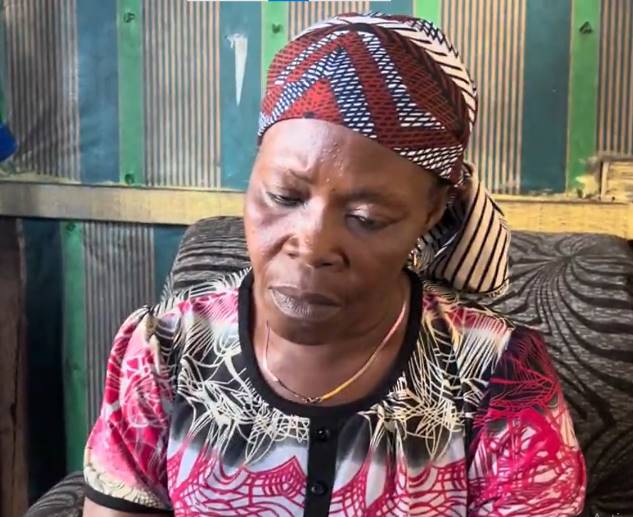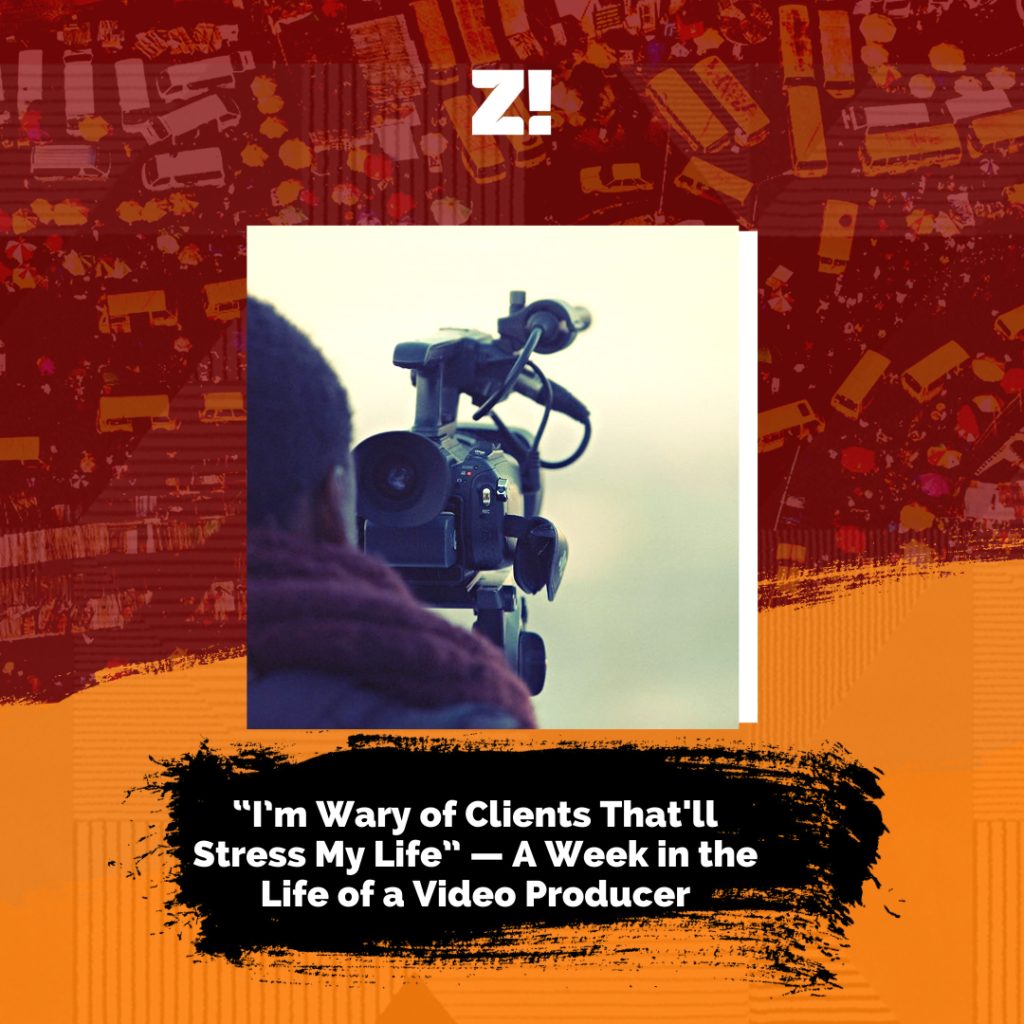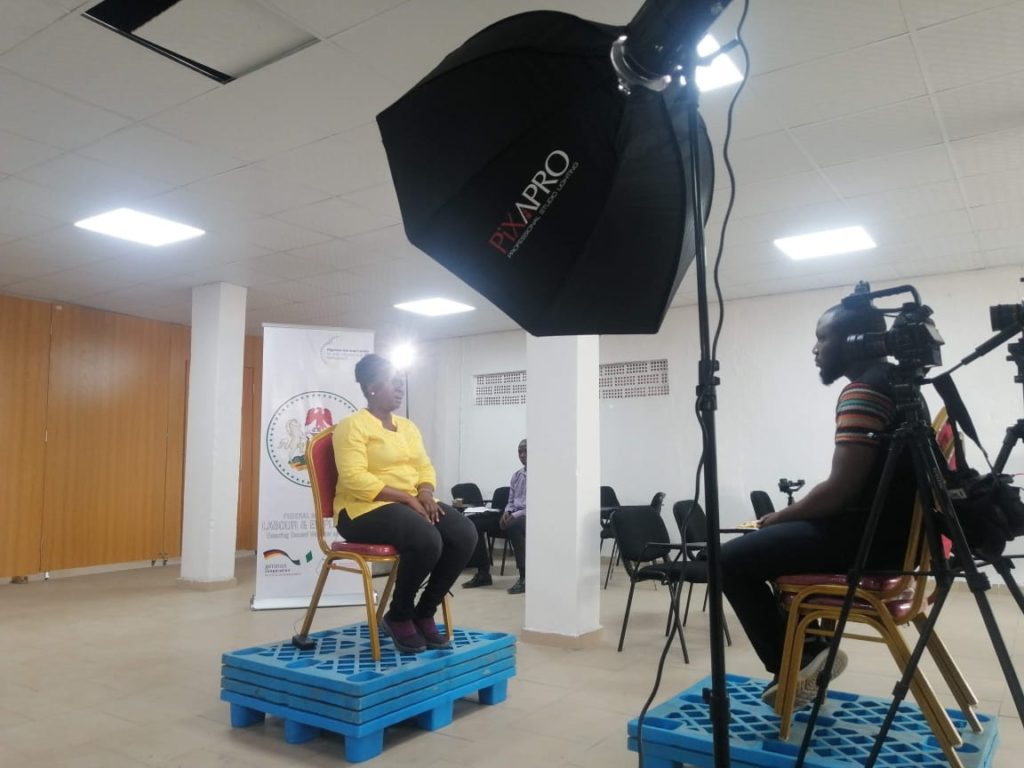On the morning of May 27, 2023, 27- year old Amanda Fernanda packed her bags and left her home in the Benin Republic for a “relative’s” house in Makoko, Lagos.
She had just graduated from culinary school and felt she’d have more exposure and richer clients in Lagos. Her father advised that her “uncle”, a skilled caterer, would be the best person to train under.
Little did she know that she would never return home again. She was sent to Lagos not to be trained—but to be the third wife to a husband she didn’t know. She also didn’t know the relationship between her father and this man. As far as she was concerned, she was living with a stranger.
We sat opposite each other in a canoe on the murky, polluted waters of Oko Agbon Waterfront Community, Makoko, where she told me about her experiences as a “wife in hostage.” Amanda even had to cook up an excuse to leave her home and speak with us today.
Stock photo of Nigerian girl [UNICEF Nigeria/2017/Sokhin]
Wearing sadness on her face, Amanda shares, “From the moment I discovered that I was a wife and not a relative, I have been struggling to return home. The man that calls himself my husband has vowed that I cannot leave his house since he spent money on my head. And knowing who he is, he can scatter the whole of Lagos to find me.”
Aside from being an unchained prisoner in her ‘marital home’, Amanda complains about her husband’s treatment (of her) as a housemaid, the two senior wives and their cruelty, and the inability to access essential needs like food and water.
“I am the one that cooks and cleans for everyone in the house, but I am not allowed to eat their food. My husband says that my father has collected money from him. Hence, he doesn’t have the money to feed me. Even the dress I wear today is from my neighbour, not mine.”
Before Amanda can eat a meal now, she has to wash plates at local restaurants in exchange for money, ranging from N700-N800.
“I don’t know anyone here. I need someone that can give me enough money for transport to find my way out of here back home,” she cried.
“I escaped from his house after three days”
Unfortunately, Amanda isn’t the only victim of bride kidnapping in the community.
A 25-year-old lady named Gael also suffered a similar fate in June 2023—but “escaped from his house after three days.”
She currently resides in the Baale’s (community leader) stilt house on the water, where we had the chance to speak with Gael about her experience.
Gael, who has only been educated up to the junior high school level, was helping her mother sell female clothes when the incident happened.
With a furious voice, she narrated, “That morning, she sent me out of the shop on an errand. Five men ambushed me on the way and shouted, “This is our wife!” They hijacked me from the road and took me to my “husband’s” house. I’ve never seen or heard of this man before that day.”
During her stay, she blatantly refused to eat, shower or have a change of clothes. For her, she’d “rather die” than be kept “captive in a man’s house” under the guise of marriage. When she ran away, she had N8,000 in her pocket, which she used to buy new clothes for sale.
“Even if I wanted to get married before, I see no reason to do that now. I can’t live in Baale’s house forever and risk this kidnapper finding me. I rather focus on getting enough money through my business and get out of this community.”
A Culture of Bride-kidnapping in Makoko, Lagos
Bride kidnapping, also known as marriage by abduction or marriage by capture, is a practice in which a man abducts a woman for marriage. It also falls under the category of forced marriage, as the bride is unwilling to get married to the man in question.
According to a 2020 United Nations Office on Drugs and Crime (UNODC) report, only a small proportion of cases of forced marriage come to the attention of police, with very few convictions. Women and girls affected by such crimes usually find it challenging to seek help and speak to authorities for fear of stigmatisation.
2023 will not be the first time the Oko Agbon community will experience bride kidnapping, as it is an ancient culture in the region.
In fact, there have been over twenty reported cases and many other unreported issues in the area over the last five years, according to Chief Hungbeji Daniel, the Baale of Oko Agbon Community.
Chief Hungbeji Daniel, the Baale of Oko Agbon Community. [Blossom Sabo/Zikoko Citizen]
The Baale says, “In 2011, the Lagos State government came to Oko Agbon and threatened to demolish the houses here if the bride kidnapping issue still continues. That’s the only reason why there aren’t as many cases as there once were before. And even then, we are not told of many cases.”
But despite this warning, the issue of bride kidnapping persists in the area. “Police and human rights organisations have come here countless times to threaten the people to stop this act, but it still continues. It’s so bad now that even when parents report these cases to the police, nothing is done. It’s almost as though we are on our own,” Baale shares.
One such parent is Pellagi Wenu, a 65-year-old single mother who has not set eyes on her daughter, Paula, since February 2023.

Pellagi Wenu, the mother of Paula, a lady who was bride kidnapped [Blossom Sabo/Zikoko Citizen]
According to Pellagi, Paula, a graduate of medicine, “just disappeared” on February 12. The man who abducted her later sent his parents to reassure her of her daughter’s safety, but she’s still not at peace. She wants to see her daughter again, as well as the man who has taken her.
With a sad demeanour, she says, “I hear my daughter on the phone every week, and she sounds like she’s doing okay, but this isn’t enough for me. I want to see my daughter again. And the man calling himself her husband should introduce himself to the family, not hide his face away.”
Is anything being done to stop this?
When Zikoko Citizen went to Adekunle Police Station, Panti, to inquire about these cases, the Superintendent, Joseph Peter, demanded a “tip” of N10,000 to release records of the incident. We refused to oblige.
We also called Comfort Agboko, the Lagos Zonal Commander of the National Agency for Prohibition of Trafficking in Persons and Other Related Matters (NAPTIP), but she insisted that “our case was for the police, not them.”
What needs to be done to save the bride-napped girls?
Amanda and Gael, through Baale Hungbeji, have reported their cases to the police station in the Adekunle region, but they have yet to receive feedback.
And just like these two girls, several other reported issues of bride kidnapping in the Oko-Agbon community are yet to be resolved. These girls are calling to you for help. Who will save them?
[ad] [/ad]




